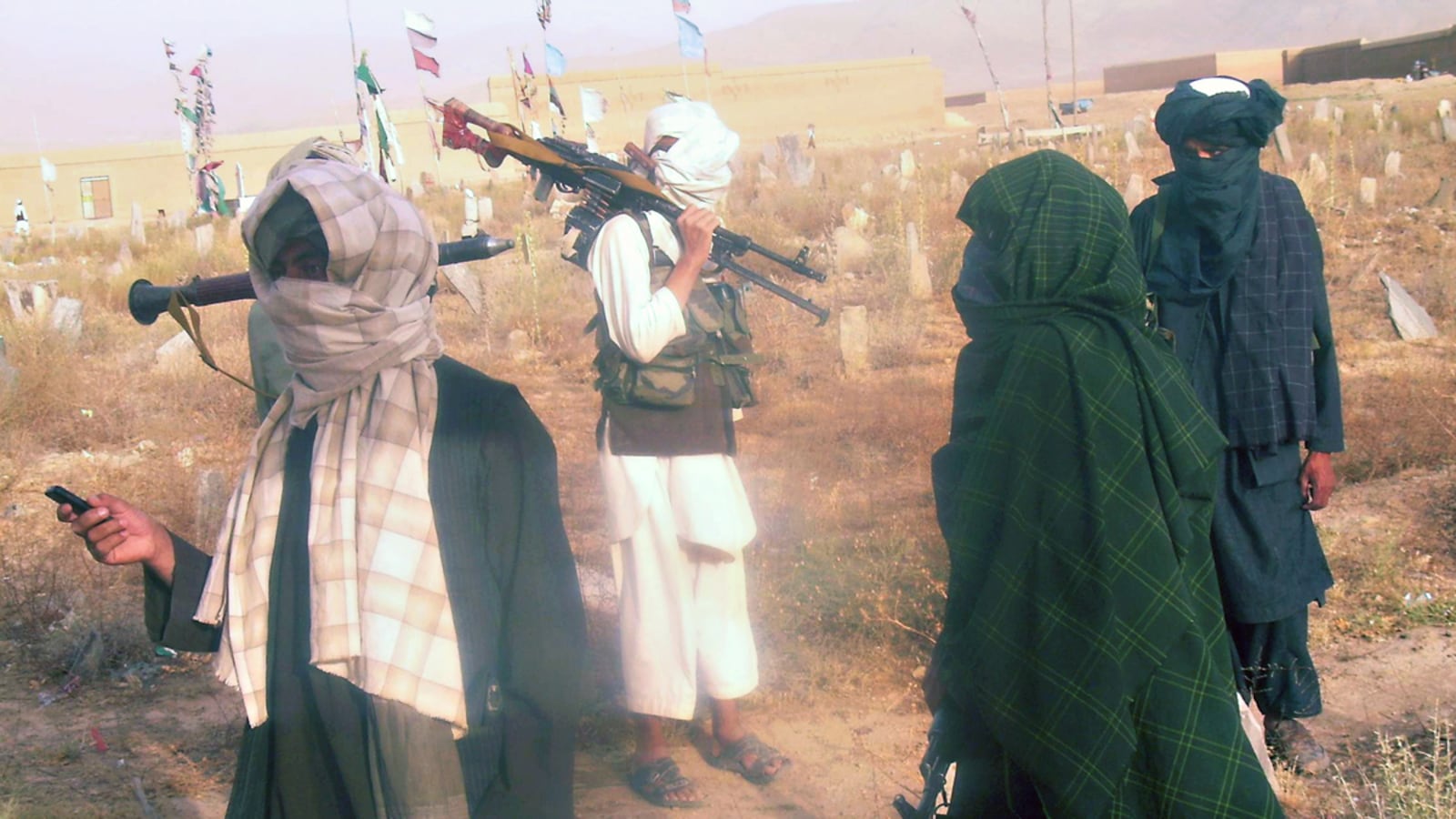The Taliban are scarcely a spent force. Despite their serious losses of fighters, commanders and territory in southern Afghanistan, they continue to strike back with suicide bombings, IED explosions and attacks like the rocket-propelled grenade strike that took down an American helicopter this month, killing 38 U.S. commandos and Afghan special forces. With 63 coalition troops killed so far in August, it’s shaping up to be the year’s deadliest month yet for the Americans’ side.
But now the Taliban have begun fighting each other, with their ranks splintered by tribal rivalries and quarrels over funding and other limited resources. The internecine struggle is highlighted by an internal clash that took place in July. Before it was over, The Daily Beast has learned, one of the Taliban’s top five commanders had been beaten, kidnapped and held prisoner by members of another faction within the group.
The dispute centered on Maulvi Habibullah, a prominent member of the Pashtun area’s Noorzai tribe. As head of a big madrassa in the largely Afghan town of Gardi Jungal in Pakistan’s Baluchistan province, Habibullah is an influential pro-Taliban leader among the Afghans who live along the frontier. He’s also a major fundraiser for another Noorzai leader, Mullah Baz Mohammad, an increasingly powerful Taliban commander in Afghanistan’s western Farah Province. Maulvi Habibullah’s contributions aren’t the only source of cash for Mohammad and his fighters; they also rake in plenty of additional revenue from ransom kidnappings and “taxes” on truckers, shopkeepers and farmers inside their territory. But it all helps Mohammad to expand his influence within the Taliban by recruiting more fighters and buying more weapons.

That situation clearly irked Mohammad’s nominal superior, Maulvi Ismael, who directs the military council of the Taliban’s ruling body, the Quetta Shura. After all, the cash Habibullah raised was coming from Afghans living in Baluchistan – right in the backyard of the ruling body, which is based in the province’s capital city, Quetta. And yet Habibullah was bypassing the chain of command, sending the money straight to Mohammad rather than sending it to the leadership in Quetta. So last month, Ismael traveled to Gardi Jungal and paid a call on Habibullah.
In a tense meeting at the madrassa, Ismael demanded a full accounting of whatever money Habibullah had given to Mohammad in the past, and he ordered Habibullah to channel all future contributions through military council in Quetta. Habibullah flatly refused, saying the money belonged to the Noorzai tribe, not to Ismael or the Taliban. Anyway, Habibullah said, it was impossible to show Ismaeal the financial records: there were none. Ismael didn’t want excuses; he warned Habibullah to comply with his orders in the future or else.Evidently hoping to cool things down, Habibullah went to Quetta the next day and tried to continue the discussion with Ismaeal. But when they met at a Taliban safe house in the city, Habibullah remained adamant: Ismaeal’s military council had no right to distribute Noorzai tribal, he insisted. The argument escalated until Ismael ordered his men to handcuff Habibullah and take him away to be locked up at a clandestine Taliban compound near the city. A Noorzai tribal elder, Hajji Kashmir Khan, tried to intercede, warning senior Taliban leaders that Habibullah’s arrest “was an insult to the whole tribe.” The Noorzai tribe was proud to be funding Mohammad, Khan said, calling him “the most active commander in Farah.” The appeal did no good.
When Habibullah’s madrassa students and Commander Mohammad got word of what Ismael had done, they wasted no time. Mohammad immediately sent a message to the Taliban’s top commander, Abdul Qayyum Zakir, asking him to have Habibullah freed. Nothing happened. So Mohammad arranged to meet with Ismael himself at the house of two Taliban commanders in Kuchilak, a small town some 10 miles northwest of Quetta – and arrived at the July 23 meeting accompanied by three pickup trucks full of armed men. They overpowered Ismael’s small security detail, seized the military council chief, beat him, and hauled him away to a private lockup near Habibullah’s madrassa.
Having seized Ismael, Mohammad sent word to the shura that he would trade his hostage for Maulvi Habibullah. After more than a week of urgent negotiations, Mohammad finally released Ismael on Aug. 4, on the understanding that Habibullah would soon be freed. Nevertheless, Habibullah was held captive for eight more days, according to one Quetta commander. Taliban leaders have assigned a committee to investigate the issue when the holy month of Ramadan ends on Aug. 30.
The incident has embarrassed the Quetta Shura’s leadership and humiliated its military council’s chief. But more than that, it has raised swarms of ill will between the Noorzai, one of Afghanistan’s largest Pashtun tribes, and the Taliban’s top command. “The whole Noorzai tribe is now angry with the Taliban for having insulted and jailed their imam,” says Zabihullah, a Taliban official close to the top leadership. A Quetta-based commander, speaking anonymously for security reasons, worries that the incident could be a sign that the insurgency might fall apart. “This unimaginable dispute raises my concern that we could turn from holy warriors into common, competing criminal gangs,” he says. A former senior Taliban minister, asking not to be quoted by name, blames the men now at the top of the insurgency: “It’s the Taliban’s misfortune to have the best fighters but a backward-minded leadership.”
Taliban unity has suffered under Zakir’s leadership, the former minister and several senior commanders tell The Daily Beast. And now the Ismael-Mohammad feud is once again drawing attention to the Taliban’s heavy footprint inside Pakistan. The continuing ties between the Afghan insurgents and Pakistan’s security forces continues to be an international embarrassment to the Islamabad government, which wishes the Taliban would be as unobtrusive as possible while taking refuge inside Pakistan. “This incident exposes once again how freely the Taliban system is operating in Pakistan,” says an Afghan government intelligence officer who cannot be quoted by name.
The dispute could present a valuable opportunity for U.S. forces in Afghanistan. Noorzai leaders aren’t the only Pashtun tribal heads who have problems with Taliban; many of them are sick of the never-ending insurgency and what it’s doing to their country. The trick for the Americans is to find ways to woo the disaffected elders into breaking with the Taliban and signing a truce with Kabul. The trouble is that tribal leaders may think twice about throwing in their lot against the Taliban. With U.S. combat forces expected to pull out of Afghanistan by 2014, the Taliban might decide to settle old scores. Afghans can’t be blamed if that thought scares them.





